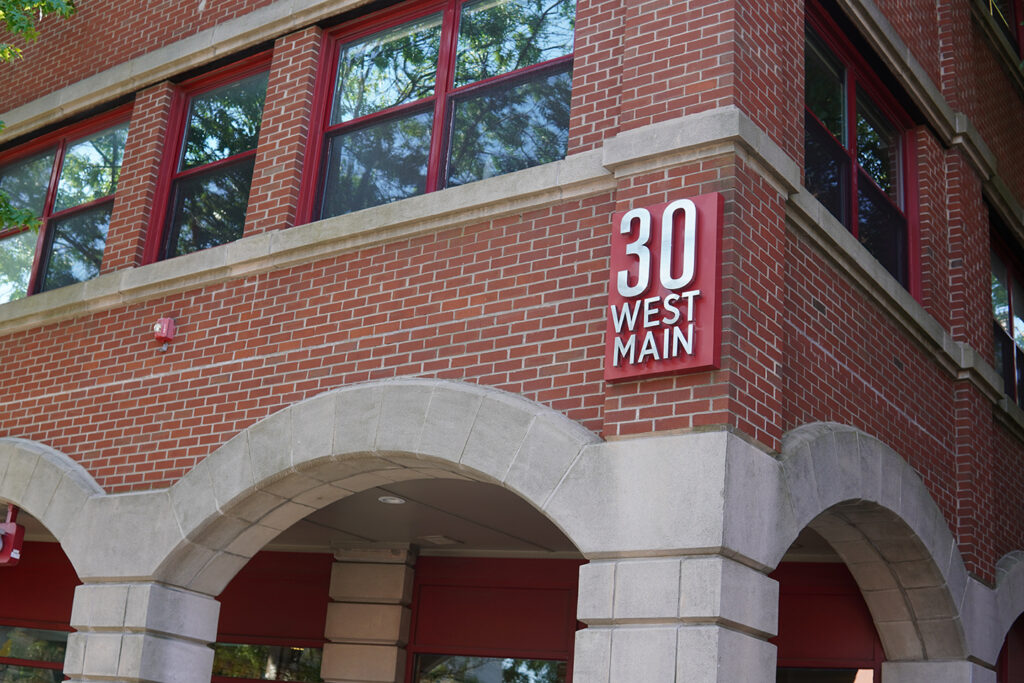Zeldin outlines what EPA’s new priorities mean for Long Island

Lee Zeldin, former U.S. Congressman and current head of the Environmental Protection Agency, spoke at a Long Island Association special event at the Crest Hollow Country Club in Woodbury on April 11 about how the EPA’s shifting priorities affect Long Island.
Mr. Zeldin touched on the five pillars he and the EPA announced in February as part of the Powering the Great American Comeback Initiative. The pillars include ensuring clean land, water and air for every American; restoring U.S. energy dominance; reforming permit approval procedures and streamlining cross-agency partnerships; making the United States the AI capital of the world; and bringing back U.S. auto industry jobs. According to Mr. Zeldin, these are promises President Donald Trump made throughout his campaign, initiatives he has since entrusted to various government agencies, such as the EPA, to implement.
“We need to both protect the environment and grow the economy; we can’t just choose. We can’t just sit back and decide, ‘Okay, which one do we want?’” said Mr. Zeldin. “We have to approach the challenges we face in this country by asking ourselves, ‘Is there a way to work through this challenge where we are both protecting the environment and growing the economy?’”
While exploring alternative energy generation, including wind power, has been part of the EPA’s past efforts, Mr. Zeldin said that President Trump will not approve any new wind projects.
“The president has made it crystal clear that, to the cabinet and to the public, that he is not approving new wind permits right now, and there are permits that have been, in the past, granted previously, there will likely be more applications in the months and the years and beyond to come, but that is the mandate directly from the president.”
Instead, Mr. Zeldin declared himself a proponent of pipeline projects, stating that this is in line with the president and the secretaries of the Interior and Energy.
“There are a couple of pipelines that have been brought up a lot. One is Constitution pipeline, to be built through New York to carry natural gas,” said Mr. Zeldin. “It’s energy, it’s jobs. New England is begging for having more access to natural gas.”
This proposed pipeline would carry fracked natural gas from Pennsylvania to a hub in Albany. New York state currently has a ban in place prohibiting the extraction of natural gas through fracking as it has been linked to the pollution of drinking water.
“In Pennsylvania, the epiphany has already happened. All parties work together and they tap into the extraction of natural gas,” Mr. Zeldin said. “There is a ban in place in New York on the extraction of natural gas. So our pipeline allocations, they don’t get approved.”
Mr. Zeldin highlighted the energy demands AI data centers would put on the system, stating that off-shore wind as a sole source of power would not be enough to keep up. He suggested that nuclear, hydropower and coal burning could be used to meet that demand nationwide.
“Collectively, tapping into all of that is important,” said Mr. Zeldin. “It’s important for our national security, our economy and our environment to be in charge of our own destiny as it relates to tapping into energy as opposed to relying on foreign sources.”
Mr. Zeldin harkened back to Long Island’s legacy of scientific innovation to find new ways to meet energy demands.
“At our great research labs, there’s been a lot of advancements in sources of energy, of innovation, in ways of being able to tap into our own resources that is best for the environment,” Mr. Zeldin said. “We should continue to do that, we should continue to invest in that. That progress is something Long Island should be proud of.”
He also called on companies to self-regulate, imploring them to turn in industry violators and tout their environmental accomplishments.
“This is a moment in time for companies and industries to articulate that they do care about the environment, to self-police within your own industry. If there’s a bad actor who is ruining it for everybody, say something to them,” Mr. Zeldin said. “If you’re a good steward of the environment, let it be known.”
When it comes to preserving open space locally, Mr. Zeldin saiud that it’s important to accept reality for areas that are already developed and look to make informed choices for the remaining land and natural enclaves that are left.
“If we make smart decisions going forward, we will be able to protect the coast. It’s some of the best part of our island as far as real estate value to be able to develop it all up, but it’s not the smartest thing for the Island long term,” he said. “There was a conservation easement tax credit out on the East End where that community would put easements through their property. Who knows how much it would have been built up by now if it were not for that conservation easement tax credit?”
Mr. Zeldin called on the federal government to mitigate pollution where it has been found responsible, including the polyfluoroalkyl substances, or PFAS. One such site in Suffolk County is the former Grumman site in Calverton.
“What you see around the country, in many respects, is that the contamination, including superfund sites, were caused by the federal government,” Mr. Zeldin said. “The federal government has a responsibility, as it relates to where it has contaminated itself, to clean it up, to clean everything up.”
The push for AI data centers on Long Island is something Mr. Zeldin feels fits in with its legacy of industrial and scientific innovation, and will help bring money and jobs to the region.
“We can’t allow this move towards America being the AI capital of the world and Long Island being left out of it, left behind. We should aspire to be the leader of AI of the country,” he said, before imploring audience members to take action. “If you want Long Island to be the tip of the spear of AI … have a meeting next week and huddle up.”









